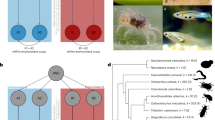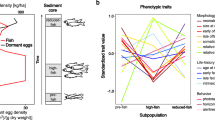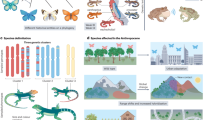Abstract
Whilst the principle of adaptive evolution is unanimously recognised as being caused by the process of natural selection favouring the survival and/or reproduction of individuals having acquired new advantageous traits, a consensus has proven much harder to find regarding the actual origin of species. Indeed, since speciation corresponds to the establishment of reproductive barriers, it is difficult to see how it could bring a selective advantage because it amounts to a restriction in the opportunities to breed with as many and/or as diverse partners as possible. In this regard, Darwin himself did not believe that reproductive barriers could be selected for, and today most evolutionary biologists still believe that speciation can only occur through a process of separation allowing two populations to diverge sufficiently to become infertile with one another. I do, however, take the view that, if so much speciation has occurred, and still occurs around us, it cannot be a consequence of passive drift but must result from a selection process, whereby it is advantageous for groups of individuals to reproduce preferentially with one another and reduce their breeding with the rest of the population.In this essay, I propose a model whereby new species arise by “budding” from an ancestral stock, via a process of inbreeding among small numbers of individuals, driven by the occurrence of advantageous recessive mutations. Since the phenotypes associated to such mutations can only be retained in the context of inbreeding, it is the pressure of the ancestral stock which will promote additional reproductive barriers, and ultimately result in complete separation of a new species. I thus contend that the phenomenon of speciation would be driven by mutations resulting in the advantageous loss of certain functions, whilst adaptive evolution would correspond to gains of function that would, most of the time be dominant.A very important further advantage of inbreeding is that it reduces the accumulation of recessive mutations in genomes. A consequence of the model proposed is that the existence of species would correspond to a metastable equilibrium between inbreeding and outbreeding, with excessive inbreeding promoting speciation, and excessive outbreeding resulting in irreversible accumulation of recessive mutations that could ultimately only lead to the species extinction.
Similar content being viewed by others
Article PDF
Author information
Authors and Affiliations
Corresponding author
Rights and permissions
About this article
Cite this article
Joly, E. Essay: On the close relationship between speciation, inbreeding and recessive mutations.. Nat Prec (2010). https://doi.org/10.1038/npre.2010.5003.2
Received:
Accepted:
Published:
DOI: https://doi.org/10.1038/npre.2010.5003.2



